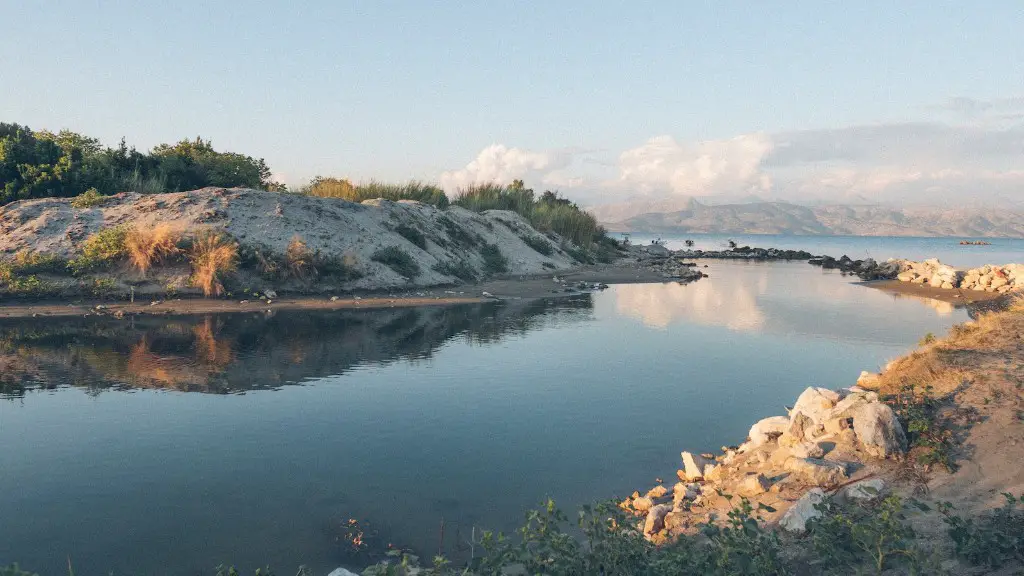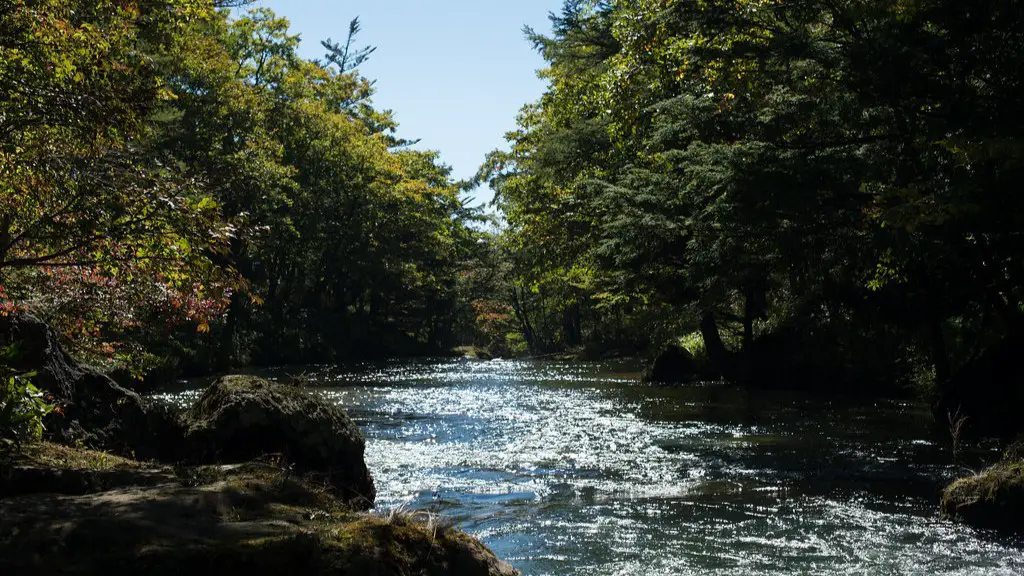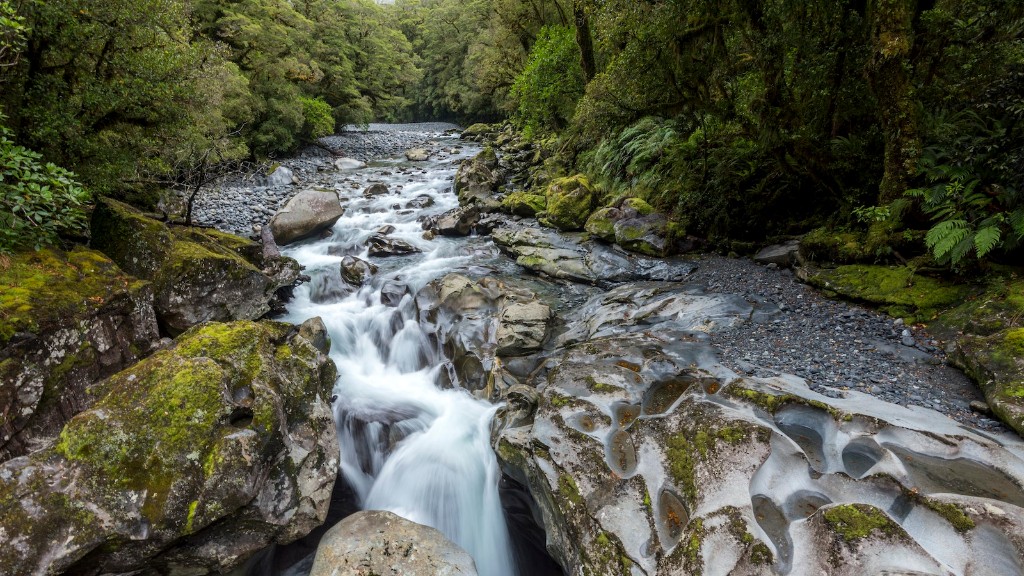Introduction
The Mississippi River Delta is an area of coastal wetlands, marshlands and barrier islands that are located in the southern United States. It is part of the Mississippi River watershed, stretching from Louisiana and Mississippi to the Gulf of Mexico. The delta covers over 30,000 square miles and is home to some of the world’s most important marine and terrestrial wildlife. It is essential for the survival of numerous species, including the Southern Gulf Sturgeon which is listed as endangered by the United States Fish and Wildlife Service, as well as the American Alligator, American Black bear and several species of turtle.
Ramsar Site
The Mississippi River Delta has been designated a Ramsar site, a Wetland of International Importance, since 1986. A Ramsar site is a wetland that has been said to have “exceptional biodiversity and ecological value” and is seen as important to maintain the health of the region’s ecosystems. The delta is also home to various protected species, such as the Gulf Sturgeon and Least Tern, as well as being a key stopover area for migratory bird species. The delta has also been protected under the US Clean Water Act and the US Endangered Species Act.
Formation
The delta was originally formed by the combined force of the Mississippi River and the tides of the Gulf of Mexico. The river has been slowly depositing sediment and other material into the Gulf since the end of the last ice age, forming the present-day delta. The size of the delta can be seen to fluctuate, with an estimated 30% of it being made up of newly-deposited sedimentary material each year. In addition, the presence of numerous waterways, lakes, and gulf seeps creates a unique and diverse environment within the region.
Threats from Anthropogenic Activity
Unfortunately, the delta has faced a number of anthropogenic threats due to the agricultural practices in the region, as well as the damage caused by the construction of dams, canals and levees for navigation and flood control. These activities have led to a reduction in the amount of sediment transported to the delta, as well as a decrease in the amount of nutrients deposited in the area. This has led to a decrease in the productivity of the delta, as well as an increase in erosion and wetlands loss.
Conservation and Restoration Efforts
In recent years there has been an increased effort to help conserve and restore the delta. A range of conservation and restoration initiatives have been implemented by the local and state governments, as well as non-profit organisations. These initiatives have included the implementation of wetland conservation measures, such as planting mangrove trees, creating oyster reefs and restoring barrier islands. In addition, efforts have been made to reduce sediment runoff from agricultural land, as well as to reduce the impacts of navigation channels.
Role in the Economy
The Mississippi Delta plays an important role in the economy of the southern United States. Not only is it home to a large population of people, but it is also the source of numerous industries and jobs. These industries include fishing and tourism, which provide a large source of revenue to the local and state governments, as well as employment opportunities to local people. The delta is also home to a range of natural resources, such as oil and gas, as well as providing important habitat for a variety of wildlife species.
Ecological Impact of Tourism
Tourism to the delta has been increasing in recent years, with people coming to observe the region’s natural beauty, wildlife and culture. Unfortunately, this can also have a detrimental effect on the delta’s delicate environment. There have been cases of boat traffic and noise pollution disrupting the wildlife in the area, as well as damage to the wetlands caused by irresponsible disposal of waste.
Future of the Mississippi River Delta
The future of the Mississippi River Delta is uncertain, as the region faces a range of threats from anthropogenic activities, such as the disruption caused by navigation channels and sediment runoff. There is also the potential for further sea-level rise due to climate change. In order to protect the delta and ensure its continued health and productivity, it is essential that conservation and restoration efforts are continued and improved. In addition, increased public awareness and education are essential in order to ensure that the region’s delicate environment is not further damaged by irresponsible tourism or other activities.
Impacts of Climate Change
Climate change will have a potentially devastating impact on the delta and its inhabitants. The region is already experiencing a gradual sea level rise, as well as increasing temperatures and changing weather patterns. This will have an effect on the delta’s wildlife and vegetation, as well as potentially increasing the risk of flooding and other natural disasters. It is essential that measures are taken to reduce and mitigate the potential impacts of climate change in order to protect the unique and fragile environment of the delta.
Importance of Education and Public Engagement
It is essential that people are made aware of the importance of the Mississippi River Delta and the need to protect and conserve it. Education can play an important role in this, with people being made aware of the regional and global importance of the region, as well as the threats it faces and the actions that can be taken to protect it. Increasing public engagement and encouraging people to take part in conservation and restoration efforts is also essential, in order to ensure the future of the region.
Economic Benefits of Sustainable Development
Sustainable development in the Mississippi River Delta can offer important economic benefits, as well as protecting and conserving the environment. For example, measures such as restoring wetlands, creating oyster reefs and planting mangroves can create jobs for local people and stimulate local economies. In addition, sustainable development can help to reduce pollution and manage land-use in the region, which can have a beneficial effect on biodiversity and help to mitigate climate change.
Significance of International Cooperation
In order to protect and conserve the Mississippi River Delta, international cooperation is essential. Not only does this involve cooperation between different countries, but also between different local and state governments, as well as between various non-profit organisations and businesses. By working together, a range of initiatives can be put into place in order to protect and improve the health of the delta, while providing economic benefit to the region.
Long-Term Commitment to Conservation
The future of the Mississippi River Delta depends on a long-term commitment to conservation, restoration and sustainable development. It is essential that the local, state and federal governments collaborate in order to provide adequate funding and support for conservation and restoration efforts. In addition, increased public engagement and education is essential in order to ensure that the unique environment of the delta is protected and conserved for future generations.



